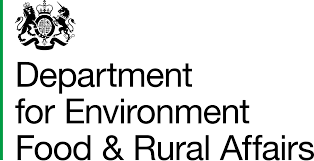Foreign and Commonwealth Office – 2019 Press Release on the OSCE Ministerial Council
Below is a press release issued by the Foreign and Commonwealth Office on 10/12/2019.
Delivered by Philip Barton at the 2019 OSCE Ministerial Council in Bratislava on 5 December 2019.
Thank you Madame Chair,
I would like to start by thanking the Chair in Office, Miroslav Lajčák and the Slovak Government for their warm hospitality and all their efforts over the last year.
Every year, we come together and we focus on the same serious security challenges Europe faces. We know that the OSCE’s comprehensive body of principles and commitment holds the solution. The question is whether we have the political will to honour those commitments.
This year, I see a smidgeon of hope.
Hope that the Normandy Summit next week will mark the start of progress towards peace in eastern Ukraine and bring much needed respite to the people of Donbas.
The UK commends President Zelensky’s clear commitment to finding a diplomatic solution to the conflict. I hope Russia will play its part by immediately ending support for the so-called separatists, and by upholding its Minsk commitments. We also hope to see an end to the daily intimidation and restrictions experienced by the OSCE’s Special Monitoring Mission.
I call once again for Russia to end its illegal annexation of Crimea and underline the UK’s unwavering support for the sovereignty and territorial integrity of Ukraine.
Madame Chair, as the Foreign Minister has just outlined, Georgia’s sovereignty is also being violated. For the Georgian people living close to the Administrative Boundary Line, hope is in short supply. The conflict there has divided villages and isolated communities for far too long. Let me also reiterate the UK’s support for OSCE efforts to resolve the conflicts in Moldova and Nagorno-Karabakh.
Reducing military risk is fundamental to our comprehensive and co-operative security. The OSCE conventional arms control framework provides the vehicle. If we all demonstrate the necessary political will to implement it fully in letter and spirit. We continue to see the benefits of Vienna Document Modernisation, to rebuild trust, increase confidence and enhance military transparency.
We hope that the rare consensus found last year on the Safety of Journalists signals renewed respect for fundamental freedoms and human rights. But we are not naïve. Frankly, the human rights picture in parts of the OSCE region is worsening, with unjustified restrictions on civil society, human rights defenders, and independent media.
We also hope that the 20th anniversary of UN Security Council Resolution 1325 brings comprehensive implementation of OSCE gender commitments. Throughout the region we should make gender equality an integral part of our policies.
Let me end by underlining the UK’s strong support to the OSCE – and by pledging our support to the incoming Albanian Chairmanship, as well as our solidarity in the wake of the tragic earthquake.



